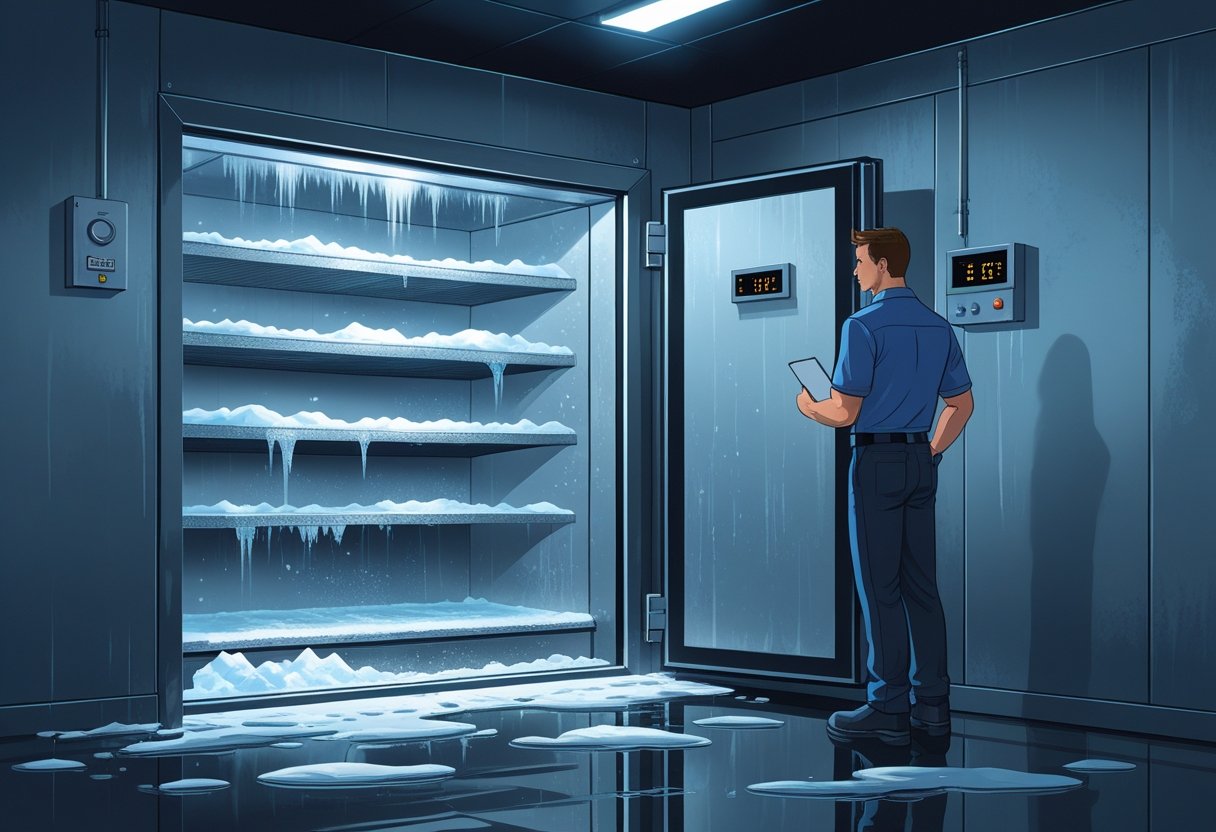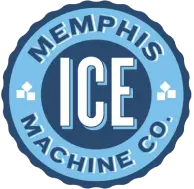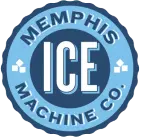proudly serving
the mid-south
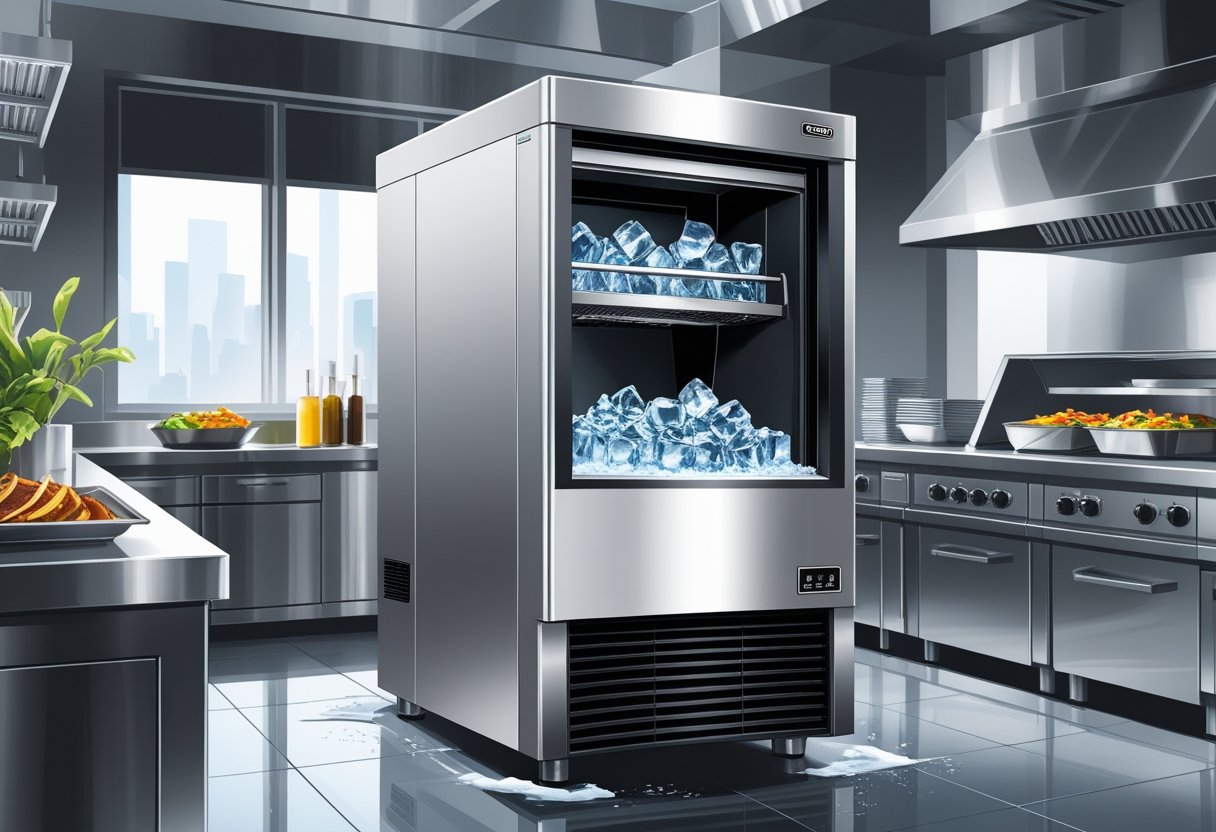
Best Commercial Ice Maker for Restaurants: Top Models for Efficiency and Reliability
When running a restaurant, having a reliable commercial ice machine is essential to keep your operation smooth and your customers satisfied. The best commercial ice maker for your restaurant balances consistent ice production, energy efficiency, and easy maintenance to meet your daily demand without interruption. Choosing the right machine can save you time and prevent costly downtime during busy service hours.
At Memphis Ice, we understand that your business depends on ice being available whenever you need it. That’s why selecting an ice machine designed for high capacity and durability is critical, especially in the Mid-South heat. With nearly five decades of experience serving restaurants and other local businesses, we know how to help you find the right fit for your kitchen’s unique needs.
Whether you’re upgrading an old unit or planning a new install, prioritizing features like quick ice production and reliable refrigeration service will keep your kitchen efficient. You can count on Memphis Ice to support your choice with expert advice and ongoing maintenance, so ice is the last thing you have to worry about.
What Is a Commercial Ice Maker?
A commercial ice maker is designed to produce large volumes of ice efficiently and reliably for business needs. It differs from home models in capacity, durability, and the type of ice produced. Knowing how it works and the options available helps you choose the right machine for your restaurant.
Key Differences Between Commercial and Residential Ice Makers
Commercial ice makers are built for high-capacity, continuous use. Unlike residential units, which typically produce ice slowly for household needs, commercial machines can generate hundreds of pounds of ice daily.
They are constructed with robust materials to withstand heavy use and meet health and safety regulations. Maintenance and ease of cleaning are also priorities, ensuring consistent ice quality.
Residential machines often produce nugget or cube ice for drinking, while commercial units offer various ice types tailored to different business uses. The size, speed, and storage capacity are scaled for food service, hospitality, or healthcare environments.
Types of Commercial Ice Machines
Commercial ice machines come in several main types:
- Cube Ice Makers produce clear, hard cubes ideal for drinks.
- Flake Ice Machines create thin, soft flakes suited for food display and preservation.
- Nugget Ice Machines make chewable, small pieces favored in bars and healthcare.
- Gourmet or Crushed Ice Machines offer crushed ice for cocktails and specialty needs.
Each type varies in how it forms and freezes water. Your choice depends on your daily ice volume and specific applications, like beverage service or food preparation.
How Commercial Ice Makers Work
Commercial ice machines follow a basic process: water is filtered, cooled, frozen, then harvested. Unlike home units, many use cycling systems that freeze water in layers or molds, then automatically eject the ice into storage bins.
Advanced models circulate water during freezing to improve ice clarity and quality. Sensors and controls regulate temperature, water flow, and harvest cycles to maintain consistent output.
Regular maintenance, including cleaning and part checks, is vital to avoid downtime, especially during busy periods. Reliable commercial equipment is a cornerstone for restaurants to keep operations smooth.
Memphis Ice understands this well and supports local businesses with dependable machines and service to reduce your ice-related concerns. For detailed choices and expert installation, consider working with experts familiar with your operational demands. For more information on commercial ice machines, see 13 Best Commercial Ice Makers for Any Business in 2025.
Key Factors to Consider When Choosing the Best Commercial Ice Maker for Restaurants
Selecting the right commercial ice maker involves understanding your restaurant’s ice needs, the machine’s reliability, and how well it preserves ice. Each factor determines how smoothly your daily operations run and how satisfied your customers stay.
Ice Production Capacity and Speed
Your ice machine should match your restaurant’s volume. Calculate your average daily ice use, keeping in mind busy hours and seasonal spikes. Restaurants typically require about 1.5 pounds of ice per meal, so adjust accordingly if you serve many guests or have a bar.
Look for machines with high ice production capacity to avoid running out during peak times. Production speed matters too: a faster machine recovers quickly after heavy use, reducing downtime. This is crucial in busy kitchens where ice is constantly needed.
Reliability and Durability
A reliable ice maker ensures consistent output without frequent breakdowns. Choose machines made with quality components and designed for commercial demands. Durability means less maintenance and fewer interruptions, which saves you time and money.
Consider models known for easy servicing and with good warranties. This can minimize downtime when repairs are needed. Memphis Ice recommends prioritizing machines backed by trusted service plans to keep your operation running smoothly.
Storage Bin Size and Ice Preservation
Your ice maker’s storage capacity should hold enough ice for your busiest times without frequent refills. A larger bin reduces downtime from running out but takes more space. Balance bin size with your kitchen layout to avoid congestion.
Ice preservation is also key. Choose machines with insulated bins to keep ice from melting and clumping. Proper ice storage prevents waste and ensures that the ice stays fresh for drinks and food preparation. Efficient preservation saves energy and maintains ice quality throughout your service hours.
For more insights on selecting the right commercial ice machine, see this comprehensive guide.
Types of Ice and Their Impact on Restaurant Service
Your ice choice affects everything from drink presentation to food storage efficiency. Understanding these differences helps ensure consistent quality and smooth operations in your restaurant.
Cubed Ice and Dice Ice
Cubed ice is the most common type used in restaurants. These clear, solid cubes melt slower, keeping beverages colder longer without diluting flavors quickly. Cubed ice is ideal for cocktails, soft drinks, and general beverage service.
Dice ice is a smaller variation of cubed ice, easier to chew and faster chilling due to its increased surface area. It’s favored for quick service where rapid cooling is necessary but the ice still needs to hold up under agitation, such as in bars or fast-paced dining environments.
Both types require consistent size and clarity to maintain professionalism and customer satisfaction. Your commercial ice machine should produce uniform cubes or dice to avoid uneven melting that impacts drink quality.
Flake Ice
Flake ice is thin, flat, and soft, making it perfect for food displays, seafood preservation, and salad bars. It conforms well to surfaces and provides constant cooling with minimal damage to delicate items.
Because flake ice melts faster than cubes, it works better for short-term cold storage rather than long-lasting drink service. This type of ice improves presentation and keeps perishable ingredients fresh without excessive moisture buildup.
In busy kitchens or buffet lines, flake ice helps maintain food safety standards while enhancing visual appeal. It’s important to choose an ice machine designed to produce flake ice consistently if you rely on this for your service.
Specialty Ice Types
Specialty ice types include nugget, gourmet, and crushed ice, each serving distinct purposes in restaurants. Nugget ice, soft and chewable, is popular in health-focused and casual dining settings, offering excellent drink cooling without a hard texture.
Gourmet ice cubes are large and clear, preferred for upscale cocktails as they have minimal surface area to slow melting and avoid watering down drinks quickly. Crushed ice is used mainly for blended beverages and cold food displays.
Each type requires tailored equipment to meet operational needs efficiently. Memphis Ice has experience helping restaurants select the right commercial ice machine to match these specific ice production needs, ensuring your ice complements your menu and service style.
For more details on choosing the right ice maker based on ice type and business needs, you can read this comprehensive guide on types of commercial ice makers.
Essential Features and Technology in Modern Ice Makers
Modern commercial ice machines combine efficiency, ease of use, and reliable performance to meet the demands of busy kitchens and bars. Key aspects include intuitive control systems, automated cleaning to reduce downtime, and designs focused on energy savings and maintenance simplicity.
Digital Control Panels and Smart Monitoring
Digital control panels make managing your ice machine straightforward. These panels display real-time data like ice production levels, water temperature, and machine status, allowing you to catch issues early before they affect output. Some models offer automatic alerts or connect to smart monitoring systems, providing remote diagnostics and usage tracking.
Having precise control helps optimize ice output and maintain consistent quality. This is especially important during peak service times when fast ice production ensures your operation never runs short. Clear LED or touchscreen interfaces reduce user errors and simplify training for staff. Choosing a machine with these features can improve uptime and lower operational headaches.
Automatic Cleaning Functions
Automatic cleaning cycles are vital for maintaining hygiene and extending your ice maker’s lifespan. These functions use programmed routines to flush and sanitize internal components without manual intervention. Regular cleaning prevents scale buildup, bacterial growth, and mineral deposits that can degrade ice quality and machine performance.
With automatic cleaning, you reduce labor and avoid shutdown periods for manual service. This feature is especially beneficial in high-volume establishments where time is limited. It ensures your ice remains safe for food and drinks and lowers the risk of costly repairs caused by neglect. Many models include reminders for cleaning cycles, helping you stay on schedule effortlessly.
Energy Efficiency and Maintenance
Energy-efficient ice machines lower utility costs, an important consideration for any restaurant or bar budget. Look for units with Energy Star certification or similar ratings indicating optimized power and water use. Efficient compressors, advanced cooling systems, and smart cycle timing contribute to performance without excess consumption.
Maintenance friendly designs also save you time and money. Easy access panels, modular components, and clear diagnostics let your technician perform repairs quickly. Routine maintenance, like filter changes and descaling, is simpler when the machine’s layout supports quick service.
At Memphis Ice, we prioritize machines with these features because reliable operation and reduced downtime keep your business running smoothly year-round. Explore options with smart energy management and user-friendly maintenance to minimize disruptions. For expert advice tailored to your operation, consider speaking with Memphis Ice professionals familiar with Mid-South restaurant needs.
Learn more about selecting the right equipment at the best commercial ice maker in 2025.
Top Commercial Ice Makers for Restaurants in 2025
Choosing the right commercial ice maker means balancing production capacity, reliability, and ease of maintenance. Models vary from compact undercounter units to high-capacity machines built for nonstop service. Understanding the options will help you match the equipment to your restaurant’s specific demands.
Best Overall: Euhomy Commercial Ice Maker
The Euhomy Commercial Ice Maker stands out for reliability and consistent output. It produces up to 400 pounds of ice per day with storage for 250 pounds, making it suitable for most restaurant sizes. The stainless steel design resists corrosion, and its fast ice-making cycle—around 8 to 15 minutes—ensures you never run low during peak hours.
Energy efficiency and sanitation are also priorities. The SECOP compressor and ETL approval show it meets strict safety and environmental standards. For a dependable machine that handles your ice needs with minimal downtime, the Euhomy is a top contender. Memphis Ice can assist with this model, ensuring installation and ongoing maintenance keep your business running smoothly.
High Capacity Models for Large Restaurants
If your restaurant experiences heavy ice demand, high capacity models deliver essential production rates. These machines often exceed 600 pounds of ice daily and integrate with larger storage bins to support continuous service. Prioritize models with durable compressors and modular components, as these handle the stress of constant operation better.
Look for options with flexible ice shapes—cube, nugget, or flake—as they suit various service types, from bars to buffets. Advanced features like self-cleaning cycles and remote diagnostics improve reliability and reduce maintenance efforts. Consulting with a regional provider like Memphis Ice helps select and maintain a system tailored to large-scale needs.
Undercounter and Modular Options
For limited space or specific kitchen layouts, undercounter and modular ice machines offer compact efficiency. Undercounter units fit beneath prep tables or bars without sacrificing output, typically producing between 50 to 300 pounds of ice daily. They streamline workflow by placing ice production close to serving or prep areas.
Modular machines allow you to customize your ice machine setup by pairing production heads with various storage bins. This flexibility accommodates growth or changing volume without replacing entire units. Choosing stainless steel surfaces and simple controls reduces cleaning time and extends service intervals. For practical ice solutions in tighter kitchens, these designs balance performance and space well.
Explore detailed options and technical specifications in the Top Commercial Ice Machine Brands to Consider in 2025.
Installation, Accessories, and Best Practices
Proper installation and the right accessories are crucial to ensuring your ice machine runs efficiently and safely. Preparing the site correctly, choosing essential tools like ice scoops, and maintaining strict cleaning and safety protocols will keep your ice supply consistent and compliant with health standards.
Site Preparation and Requirements
Your installation site must meet specific criteria to maximize performance. Ensure proper ventilation and access to a clean water supply, ideally filtered. The floor should be level and capable of supporting the machine’s weight, and nearby drainage must handle excess water without risk of flooding.
Electrical connections need to match your ice machine’s voltage and amperage requirements. Confirm your kitchen or bar area has the proper plumbing and power infrastructure to avoid costly adjustments.
Planning your space with these requirements in mind saves time and money during installation and helps prevent operational issues. For professional guidance tailored to your business, Memphis Ice is available to support your setup within the Mid-South region.
Essential Accessories Like Ice Scoops
Using the right accessories ensures hygiene and efficiency. An ice scoop is indispensable for sanitary ice handling. Always keep a dedicated, food-grade scoop stored outside the machine, preferably on a holder or in a clean container.
Avoid using hands or unwashed utensils to prevent contamination. Other helpful accessories include ice storage bins with drainage and well-fitting lids to maintain ice quality between production and usage.
Choose accessories that are easy to clean and resistant to wear. Proper tools not only uphold safety standards but also streamline daily operations, saving time during service hours.
Cleaning, Safety, and Compliance
Regular cleaning is non-negotiable for commercial ice makers. Establish a maintenance schedule that includes cleaning ice bins, machine components, and water lines to prevent buildup and bacteria growth. Use manufacturer-recommended cleaners and follow safety guidelines closely.
Always wear gloves while cleaning and handle components carefully to avoid damage. Regular inspections for mold, scale, or mechanical wear will extend your machine’s life and ensure consistent ice quality.
Compliance with health codes requires documented cleaning logs and adherence to local regulations. Memphis Ice offers maintenance plans that relieve you of this burden, keeping your equipment in peak condition while you focus on your business.
Frequently Asked Questions
Choosing the right commercial ice maker involves balancing capacity, efficiency, and reliability. You also need to consider your restaurant’s size, ice type preferences, and budget to ensure continuous ice supply without interruptions.
How do I choose a commercial ice maker for my restaurant?
Start by assessing your peak ice demand. Look at production capacity, storage size, and space availability. Energy efficiency and ease of maintenance should also weigh into your decision. Consider the types of ice your operations need, such as cube or nugget ice.
What is the most reliable brand of commercial ice makers for restaurants?
Reliability often depends on consistent maintenance and service support. Brands with strong service networks and solid warranties tend to perform best. Memphis Ice can assist local businesses by recommending trusted equipment with reliable service back-up.
Which commercial ice makers are best for small restaurant operations?
Compact undercounter units or modular ice makers work well for limited space and lower production needs. These machines provide efficient ice production without a large footprint, fitting easily into small kitchens or bars.
What are the cost considerations when purchasing an ice maker for restaurant use?
Initial purchase price varies with size and features, but operating costs like electricity, water usage, and regular maintenance also matter. Efficient models may cost more upfront but reduce long-term expenses. Factor in possible rental or leasing options to manage costs.
What type of ice is most preferred by restaurants for customer satisfaction?
Clear, hard ice cubes or nugget ice are often preferred because they chill drinks longer without quick dilution. Ice type affects presentation and beverage quality. Choose machines that produce ice types favored by your customers or suited to your menu.
What features should I look for in a commercial ice maker to ensure efficiency and quality?
Look for self-cleaning functions, easy-access panels for service, and energy-saving components. Features like rapid ice production, consistent cube size, and durable construction contribute to performance. Proper ice storage options also help maintain quality and safety.
Recent News
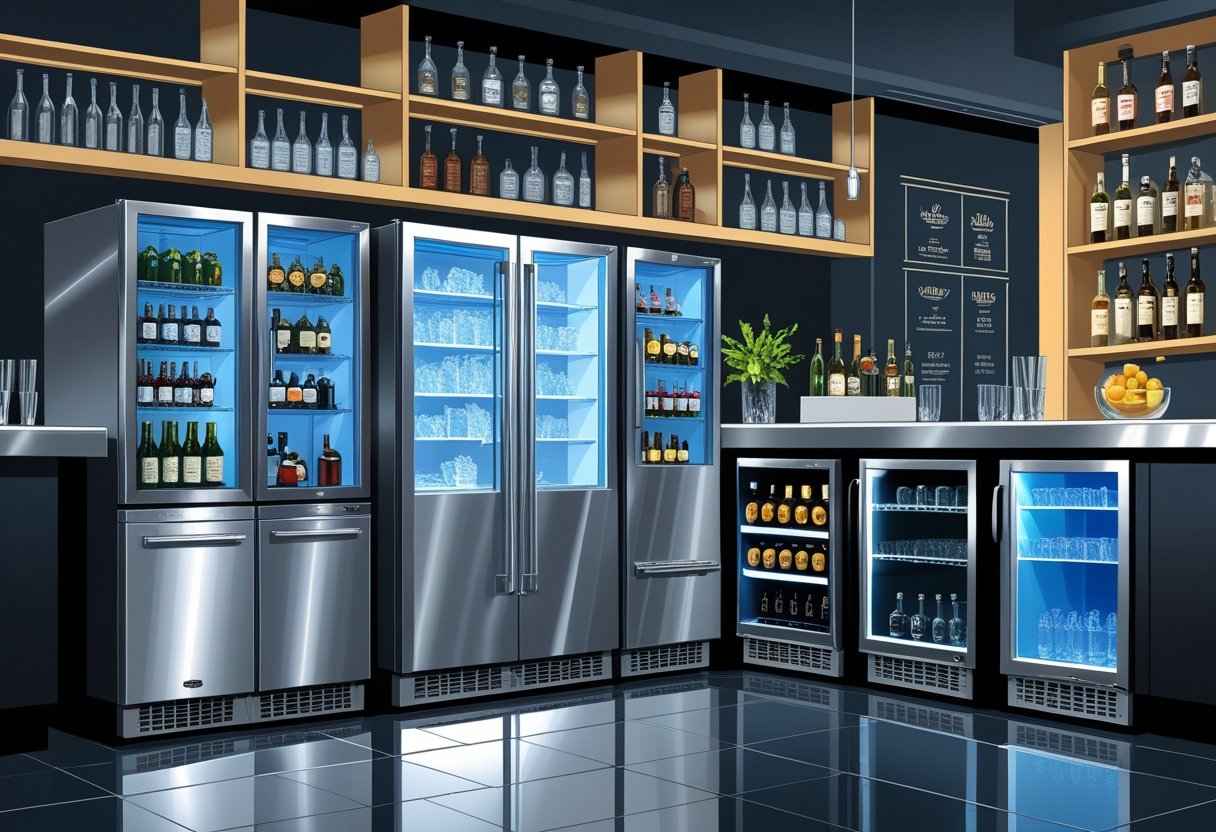
Bar Equipment Refrigeration Guide Essential Tips for Efficient Cooling and Storage
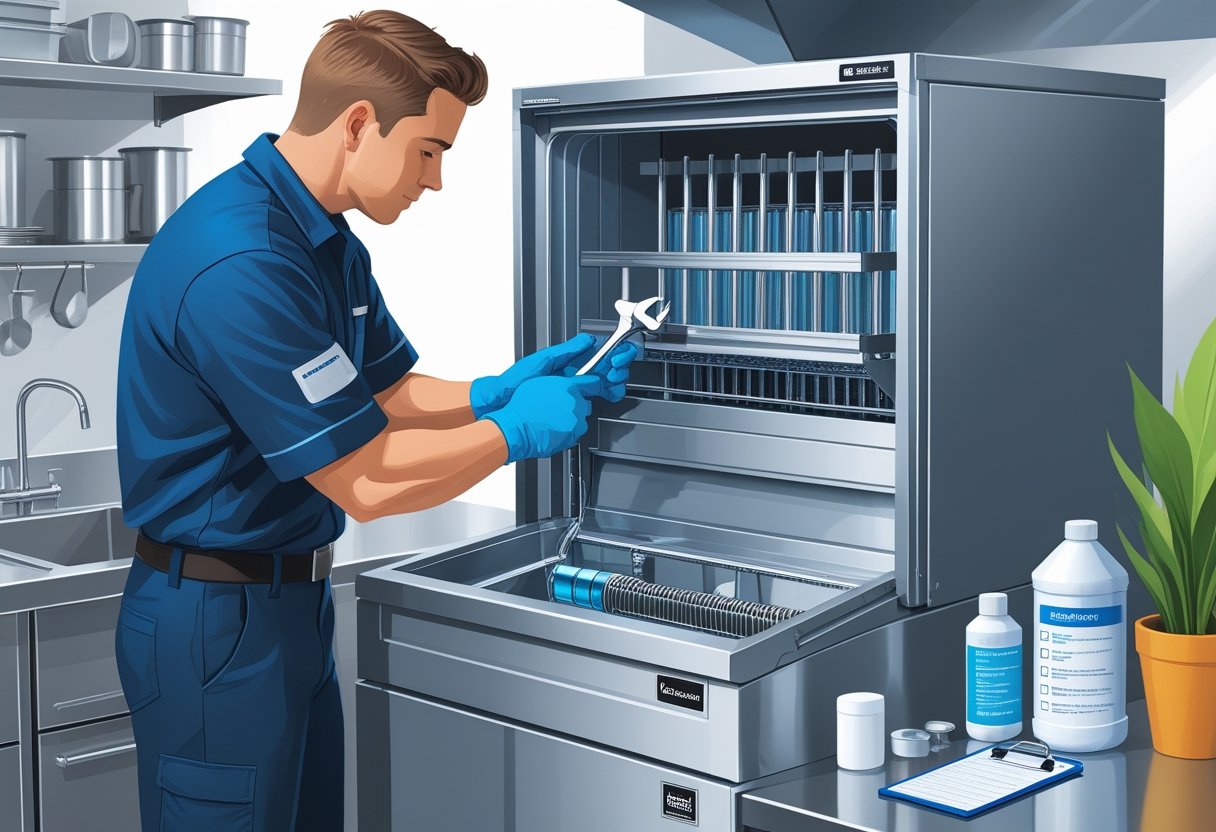
Preventative Maintenance for Ice Machines: Essential Practices to Ensure Efficiency and Longevity
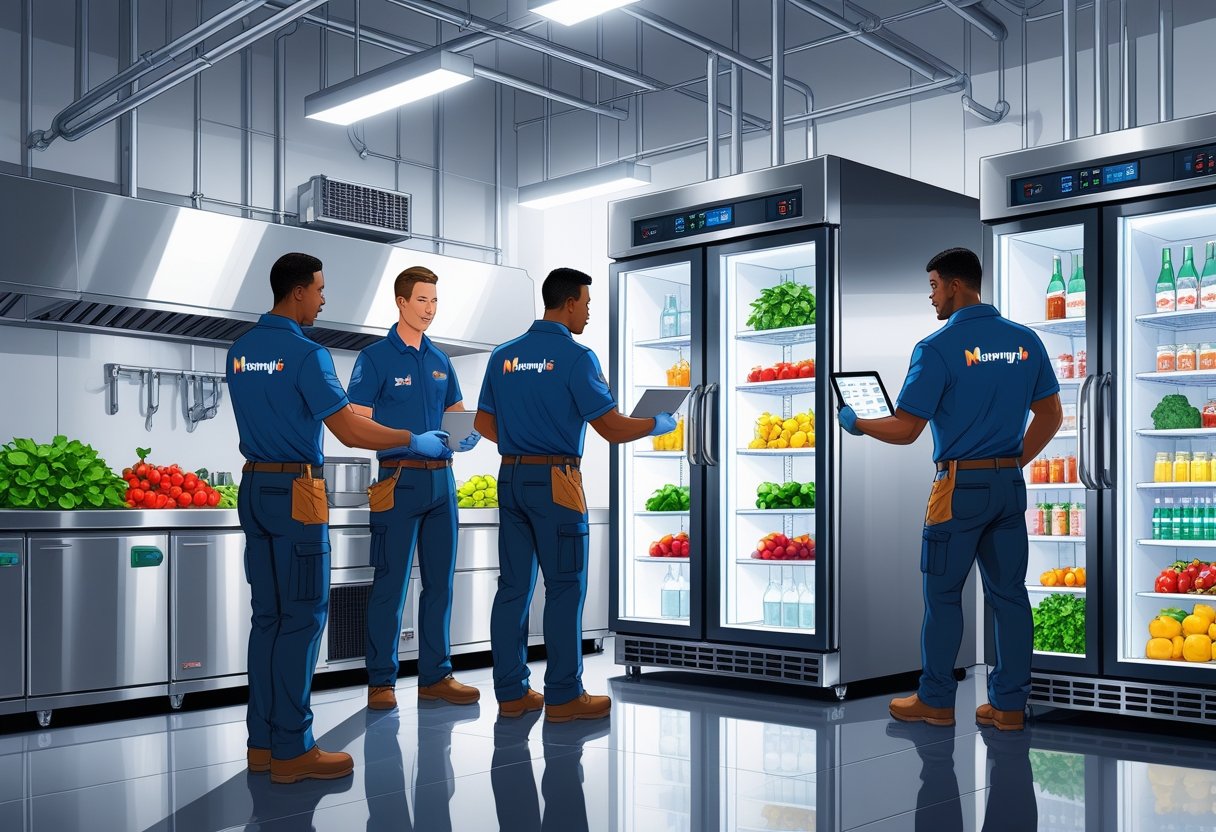
Memphis Commercial Refrigeration Experts Leading Reliable Cooling Solutions for Businesses
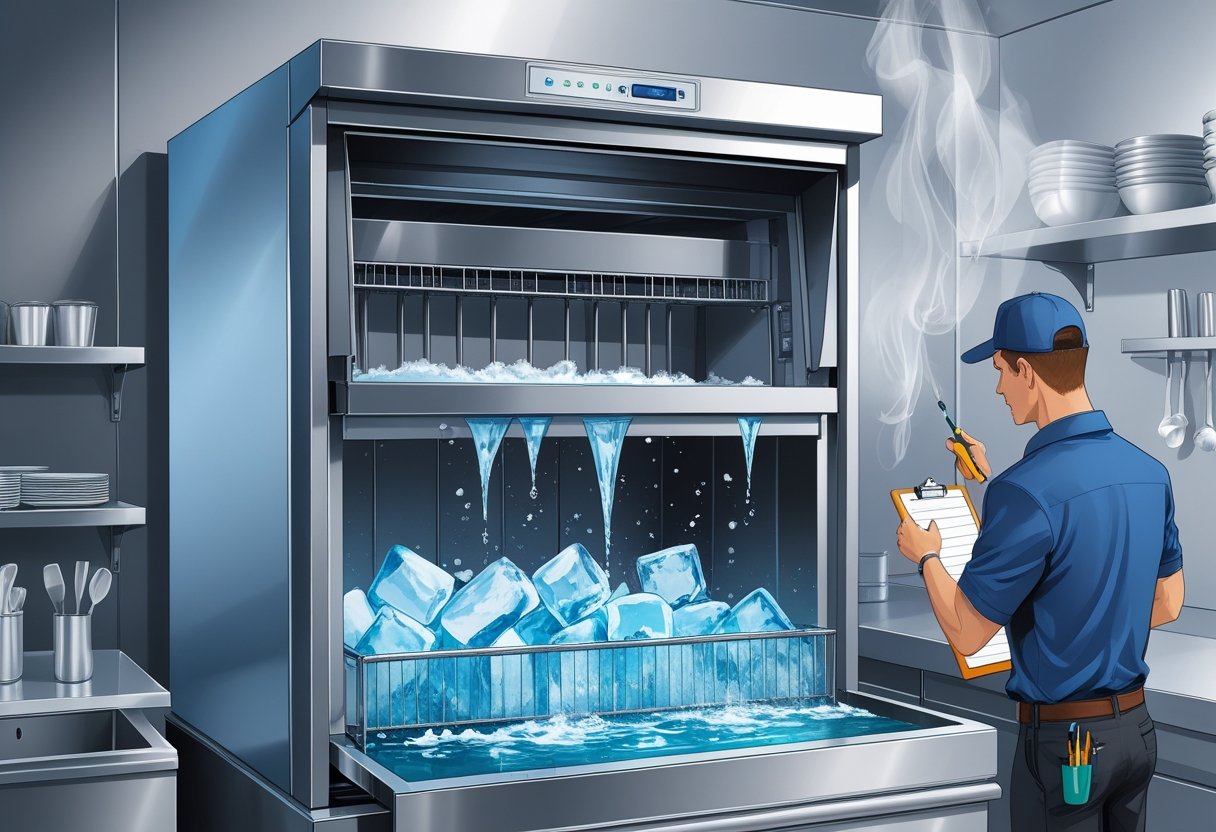
Signs Your Ice Machine Needs Service: Key Indicators to Watch For
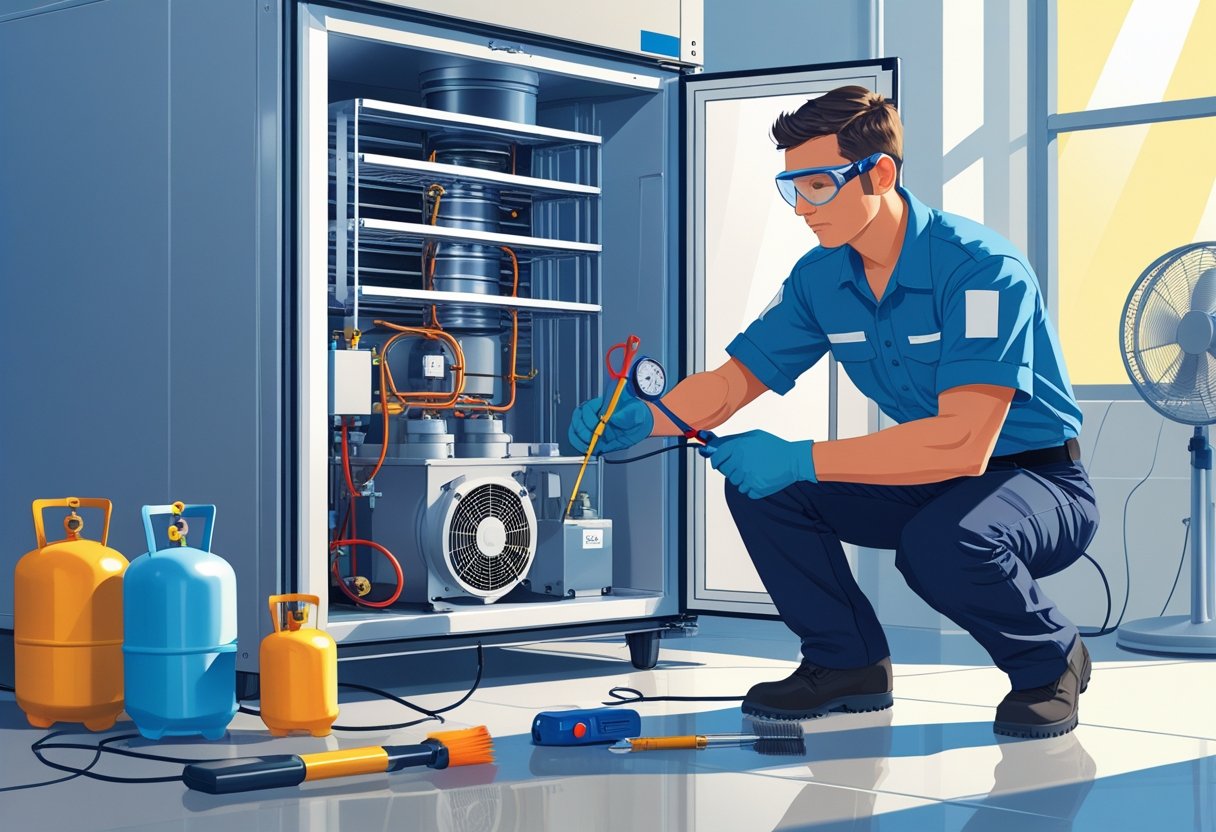
Summer Prep for Refrigeration Systems: Essential Maintenance Tips for Peak Performance
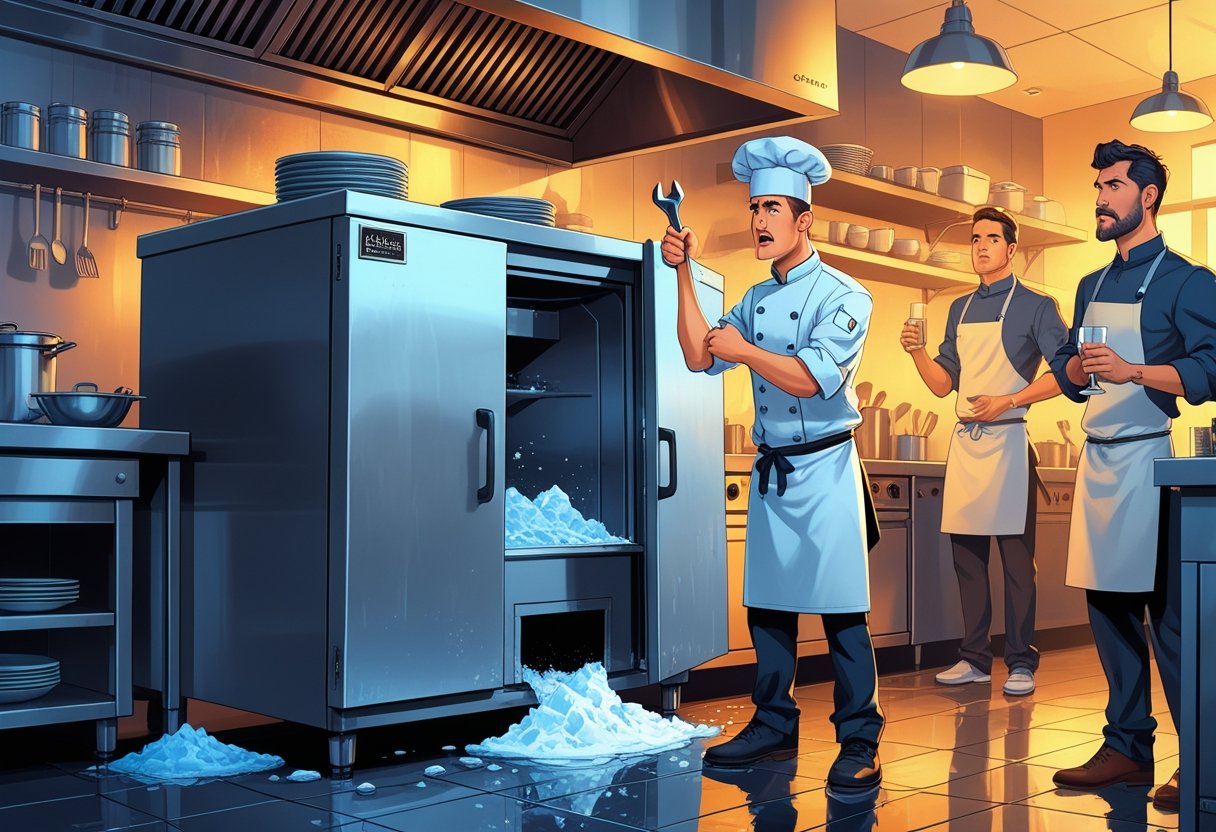
Restaurant Ice Machine Not Working: Common Causes and Quick Fixes
